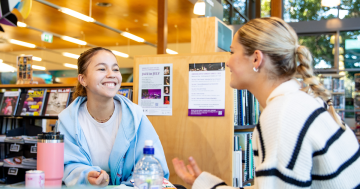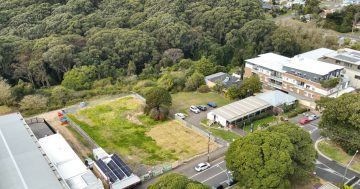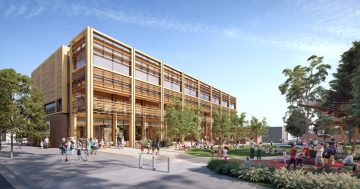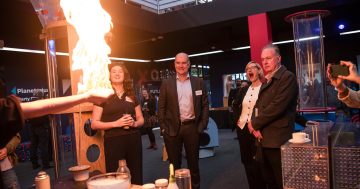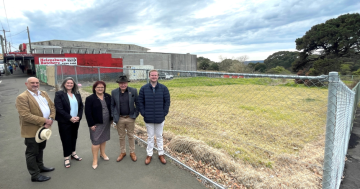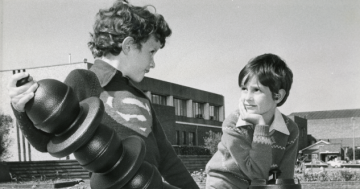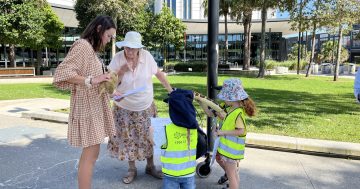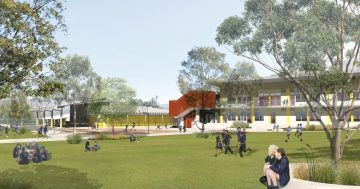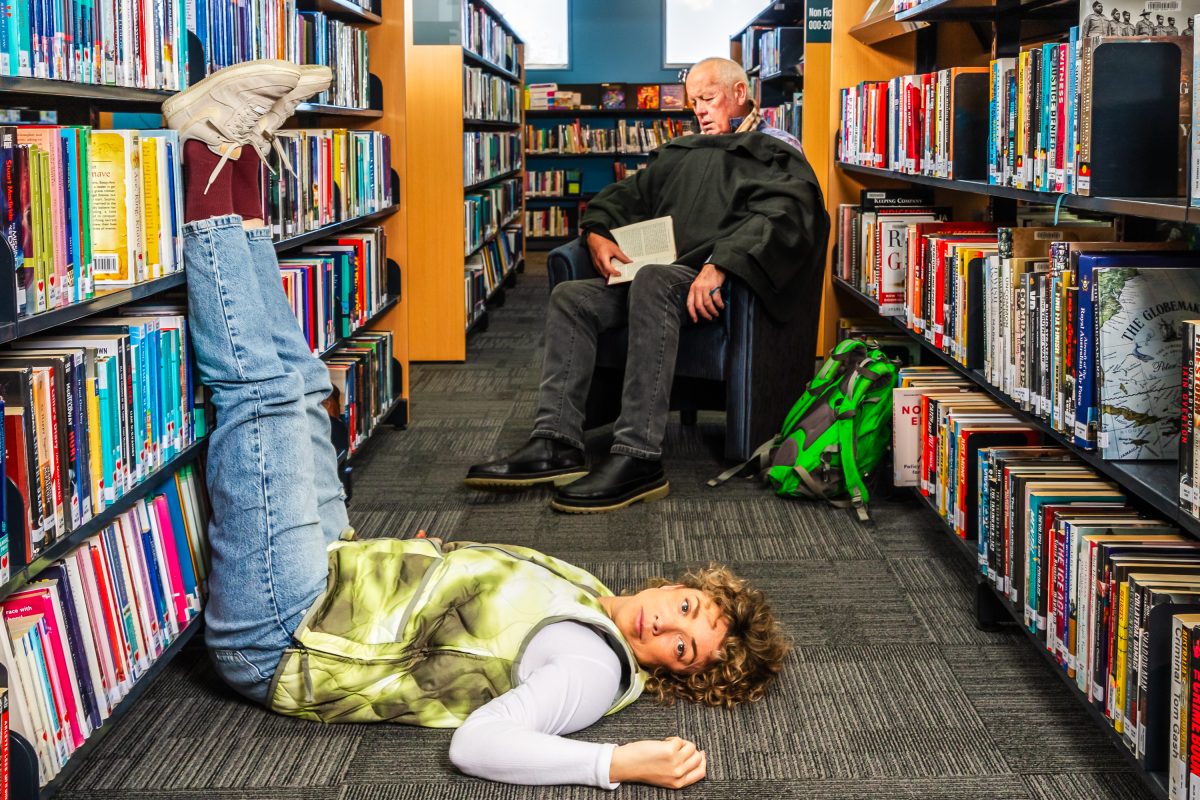
Inside the stacks after dark, a new play asks what happens when public spaces stop being truly public. Photo: Children of the Revolution.
There’s something almost sacred about a library – the faint smell of paper and dust, the soft echo of your own footsteps between the stacks. It’s a space that belongs to everyone and yet, in an age of automation and efficiency, even that simple truth feels increasingly fragile.
That fragility sits at the heart of Public Access, an inventive new drama from award-winning theatre collective The Corinthian Food Store, presented by MERRIGONGX “in situ” from today (23 October).
Part play, part experiment, Public Access is written by Amy Maree Fairall and Desmond Edwards, directed by Duncan Ragg, and features co-creator Anna Phillips among its ensemble cast. The show unfolds within an actual working library (Wollongong), blurring the line between fiction and reality as it explores what happens to public spaces — and the people who rely on them — in an increasingly privatised world.
Fairall, who once worked in a library herself, says the inspiration came from watching subtle but seismic changes unfold in the years after COVID.
“Libraries are one of the last indoor, open-access spaces that are free to the public,” she says. “They tread this beautiful tension between the logic of privatisation — efficiency, technology, cost-cutting — and the idea of creating a space for community and creativity — elements that are often inherently inefficient.”
It’s a tension that’s hard to measure, Fairall notes, because the value of public spaces isn’t easily quantified.
“How do you quantify the value of a conversation with a librarian for a lonely person who hasn’t spoken to another human that week, or the help an elderly person receives with a technological problem, or the research a student does for a school essay, or the parenting tips an isolated young mum receives at story time from other mums?” she says.
Public Access channels these questions into the relationship between Nic and Pauly — two library workers caught between policy shifts, personal crises and the creeping influence of technology. Nic is desperate for change, but the “quiet life” she craves comes at a cost. Pauly, her steadfast ally, is losing his ability to read.
Through movement, puppetry, clowning, music and text, their story becomes a meditation on what happens when human connection collides with mechanised progress.
Fairall’s own experience adds a layer of authenticity.
“I worked at the library just after COVID, when there was a lot of pressure on institutions. Numbers were down and changes were happening, as they all figured out how to reconfigure services to ensure they were relevant in this new reality,” she says.
“Something like bringing in new technology that was nominally labour saving, such as a machine that returns books for you, could cause social strain and distress for a library because it broke a process that’s been happening for a very long time.”
It’s a small-scale reflection of what Fairall calls the “fourth industrial revolution” — the global shift toward replacing human labour with advanced technology.
“There are huge pressures to substitute a lot of human labour for advanced technology,” she says. “We talk about that in a big sense but we won’t get to see the impacts for a long time.”
Public Access interrogates that, while the performance itself doubles down on that theme of intimacy and distance. The five characters — each with differing philosophies — are mic’d while audience members wear headphones to eavesdrop on their conversations, even as they wander through the stacks.
“There will be periods where you can’t see people, but you’ll hear their conversations. You get to listen in on conversations you wouldn’t otherwise hear,” Fairall says.
“There’s a tension between a collective experience, which is traditionally what the theatre has enabled, and this technology getting involved and creating individual experiences for people. What are the tradeoffs and benefits of that? We’ll find out. It’s meta in that way.”
Despite its philosophical undercurrents, Public Access doesn’t take itself too seriously. Fairall describes it as “tongue-in-cheek” interrogation of bigger structural issues in a complicated workplace.
Above all, it’s a love letter — to libraries, and to the quiet, immeasurable good they do every day — embodied in the very appearance of Public Access in the library.
“I’ve been so heartened by the support from Wollongong Library,” Fairall says. “Nobody’s asked to vet or even see it. That, to me, says everything about the very principles that keeps these spaces alive.
Public Access takes place 23 to 25 October at Wollongong Library.









